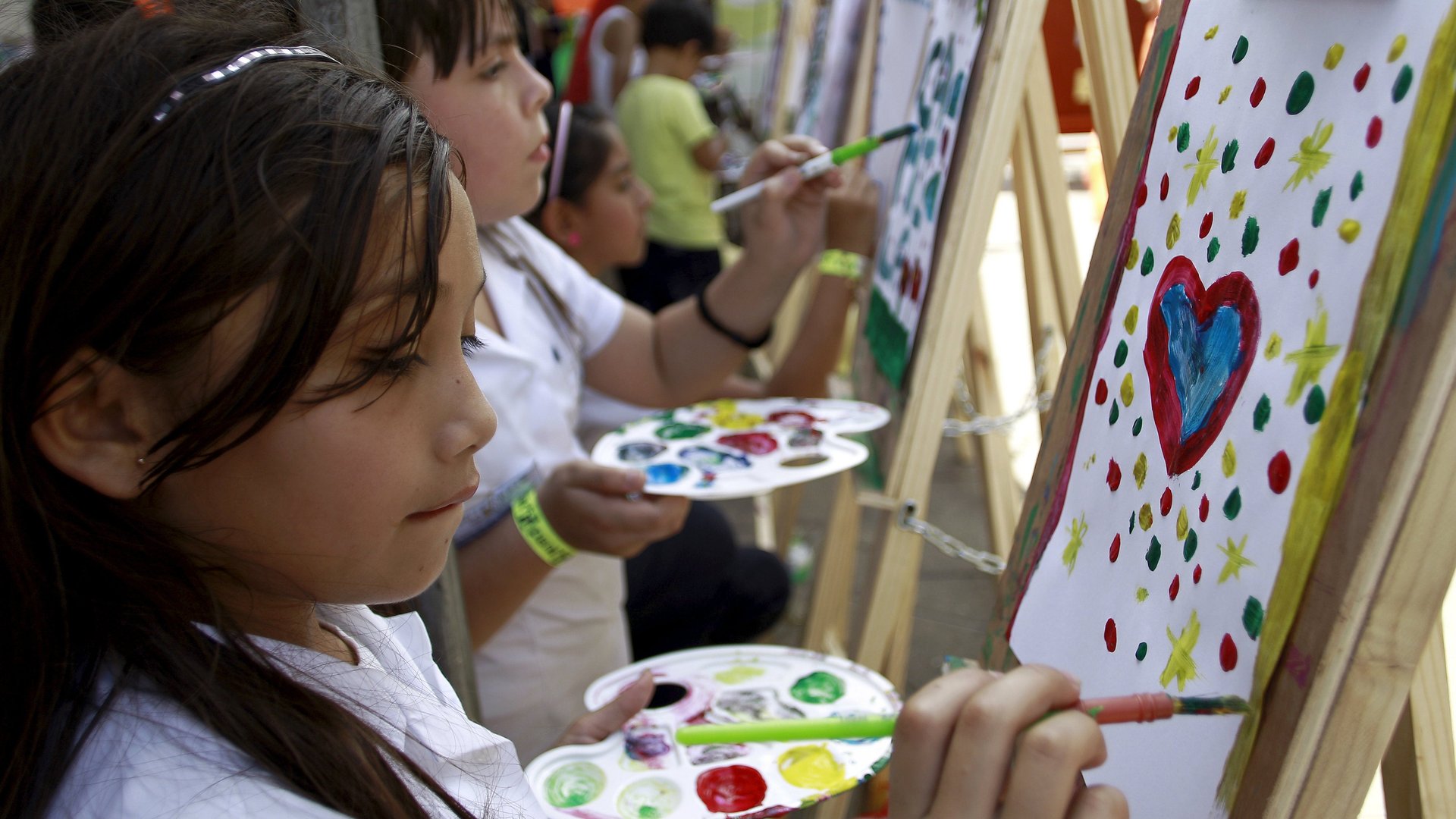A famous musician, a data wiz, and a media magnate offer expert advice about raising creative children
Creativity always ranks high in the skills children are thought to need to thrive in the workplace of the future. Since kids today are being educated for jobs that do not yet exist, they need to know how to think for themselves. Schools need to produce kids that are not job-seekers, but job-creators, the thinking goes.


Creativity always ranks high in the skills children are thought to need to thrive in the workplace of the future. Since kids today are being educated for jobs that do not yet exist, they need to know how to think for themselves. Schools need to produce kids that are not job-seekers, but job-creators, the thinking goes.
But how, exactly, can parents and teachers impart this magical creative fairy dust?
For ideas, some recently gathered in an alpine ski lodge in Switzerland with Yo-Yo Ma, the 18-time Grammy award winning cellist, Arianna Huffington, founder of the Huffington Post and Thrive Global, and Adam Grant, a professor of psychology at the University of Pennsylvania and author of Originals: How Non-Conformists Change the World. They asked them for advice about how to raise creative kids, during a session entitled “Unleashing Creativity to Thrive” at the World Economic Forum in Davos.
Ma said the key is “unconditional love,” noting that his wife did most of this since he was gone much of the time when his children were growing up. He also said it was important to expose kids to different places and “multiple perspectives” through travel, and also encourage empathy. “Empathetic thinking leads to creativity,” he said. “We can’t function without empathy.”
Grant suggested three things, offering studies and data to back up his claims. First: read more fiction, since studies suggest that countries where children’s books spin tales of impossible tasks show an increase in patent filings in the future. Elon Musk and Peter Thiel’s favorite book? Lord of the Rings. Sheryl Sandberg and Jeff Bezos? A Wrinkle in Time.
He also said parents should praise kids’ creativity in such a way that it becomes part of their identity. “Don’t say ‘that’s creative’ but say ‘you are creative,’” he said, citing studies elaborated on in his book, including one that showed kids who shared their marbles and received character praise, compared with others who received behavior praise, were subsequently more generous. Also, children of parents with lots of conflict tend to be more creative. “They have to come up with their own values,” Grant said. So rest easy, parents who fight (ie, all of us).
Huffington said she tried to give her daughters the tools to manage the voices in their heads. “I call it the obnoxious roommate in our heads,” she said, one who sows doubt and fear. She spent years trying to distance herself from the voice, and with success. “That voice only makes guest appearances now,” she said. (Perhaps it’s all the good sleep she is getting from her Sleep Revolution.) Kids should know that everyone has these voices in their heads, and then get to work figuring out how to tame them.
Anyone who has spent time with children knows that they are born infinitely creative. Schools and parents play a big role in stamping that out as they grow up. And yet, for all our failings, Ma had some inspiring, if vague, words: “The greatest art form is how we create a whole life.”